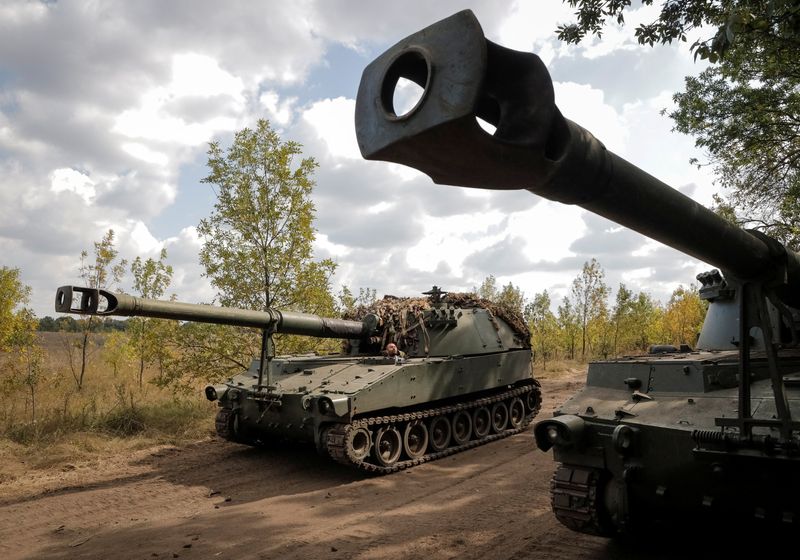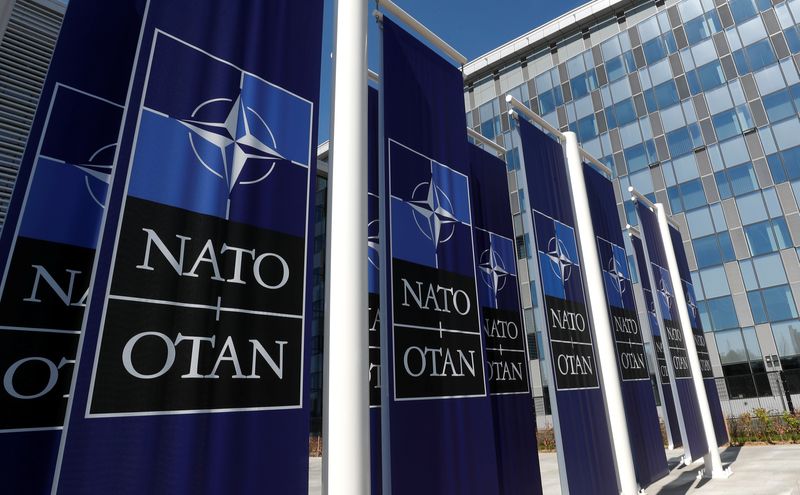By Gwladys Fouche and Sabine Siebold
OSLO (Reuters) -A top NATO military official warned on Saturday that a drastic rise in ammunition prices means that allies' higher defence spending does not automatically translate into greater security and called for more private investment in defence companies.
"Prices for equipment and ammunition are shooting up. Right now, we are paying more and more for exactly the same," Dutch Admiral Rob Bauer, the chair of NATO's military committee, said on Saturday after a meeting of the alliance's chiefs of defence in Oslo.
"That means that we cannot make sure that the increased defence spending actually leads to more security."
NATO has been pressing for a boost in defence production to satisfy a demand for weapons and equipment that has soared since Russia's invasion of Ukraine, as allies not only rush supplies to Kyiv but also build up their own inventories.
One major concern has been a shortage of 155mm artillery rounds, with Kyiv firing up to 10,000 of these shells per day.
In February, NATO Secretary-General Jens Stoltenberg warned Kyiv was burning through shells much faster than the West could produce them.
Bauer pushed for more private investment in the defence sector to ramp up production capacity, urging pension funds and banks to stop labelling defence investments as unethical.
"Long term stability needs to prevail over short term profits. As we have seen in Ukraine, war is a whole of society event," he said, adding such investment was in the private sector's strategic interest as well.
"Forty percent of the (Ukrainian) economy evaporated in the first days of the war, that was private money to a large extent, that money is gone," he noted.
Bauer also pressed business leaders to speed up the expansion of production capacity.
There was, however, no correlation between a shortage of ammunition and the arduous progress of the counteroffensive in Ukraine, according to Bauer.

"The reason why it takes time is because it is extremely dangerous, because there's an enormous amount of mines in a very deep minefield - more than 10 kilometres - with five, six mines per square meter," he said, noting Ukraine was still advancing 200 or 300 meters per day.
In 2024, NATO will be holding its largest collective defence drills since the Cold War, with over 40,000 troops from across the alliance set to take part in the exercise Steadfast Defender in Germany, Poland and the three Baltic states.
